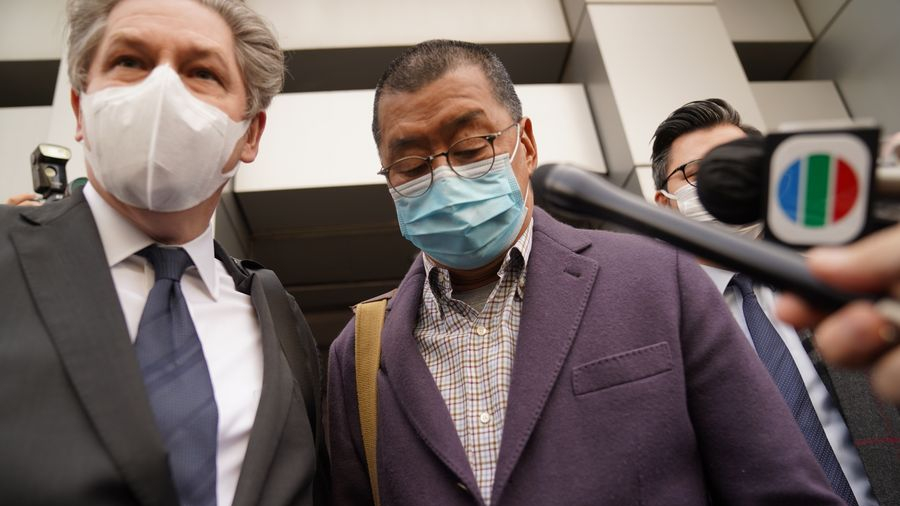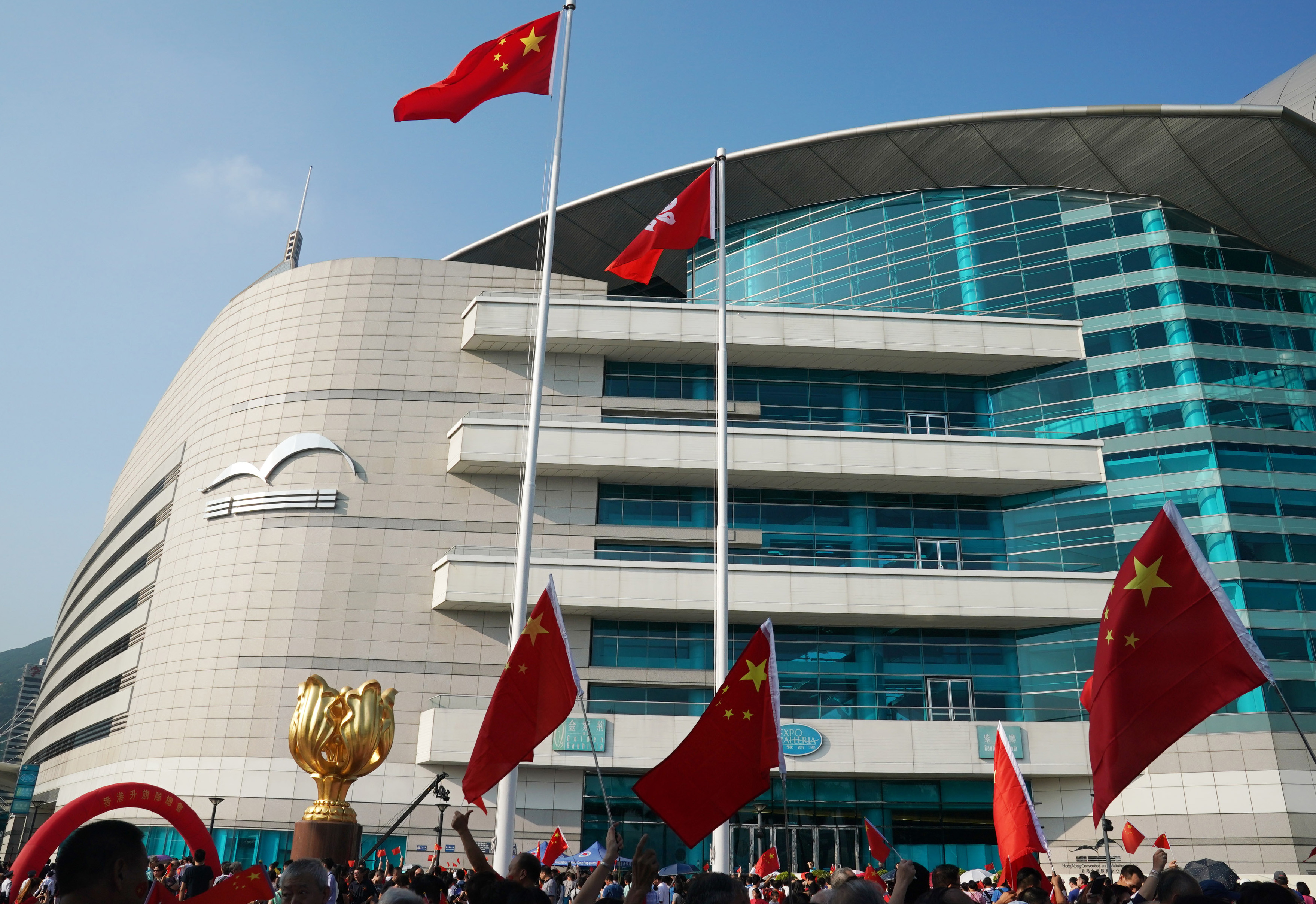
Jimmy Lai Chee-ying (R, front), alleged Hong Kong riots instigator, leaves a police station after being granted bail in south China's Hong Kong, February 28, 2020. /Xinhua
Jimmy Lai Chee-ying (R, front), alleged Hong Kong riots instigator, leaves a police station after being granted bail in south China's Hong Kong, February 28, 2020. /Xinhua
Editor's note: Carson Qin Kuan is a former reporter at HK01 and a specialist on Hong Kong affairs. He holds a Masters in International Journalism Studies from Hong Kong Baptist University. The article reflects the author's opinions, not necessarily the views of CGTN.
Media mogul Jimmy Lai Chee-ying, the owner of Apple Daily, was arrested on the morning of April 18 for taking part in an illegal assembly during the riots in Hong Kong last year, and is facing trial Tuesday afternoon.
This is no easy process, as what happened on his arresting day just confused the public – Lai was released on a 1,000 HK dollar- (130 U.S. dollars) police bail that evening, accompanied by a lawyer, according to local media reports.
It is the second time Lai was released on bail. He was arrested in February for allegedly being involved in an unauthorized demonstration and intimidating a reporter.
Questions are still in the air: Why is the bail so low, and can the Hong Kong legal system still guard it with rule of law and justice?
The ups and downs of the bail
In the Hong Kong legal system, the practice is preferred to "mainly rely on bail, supplemented with detainment," under which judges should take advice on both sides of prosecution and defense and decide whether the suspected should be on bail or not.
It fits Hong Kong's legal system – Article 9 of Hong Kong Criminal Procedure Ordinance says that the court should take factors into account on bail application, like seriousness of a case, sufficient evidence, the possibility of the suspected absconding and recurring crime, etc.
Professor Gu Minkang, a former vice-dean of City University of Hong Kong's law school, said that although the judge has the final say in the suspect's bail application, opinions from both sides of prosecution and defense are also crucial and should be fully considered.
However, things look a bit different today.

National flag raising ceremony at the Golden Bauhinia Square in Hong Kong, south China, September 8, 2019. /Xinhua
National flag raising ceremony at the Golden Bauhinia Square in Hong Kong, south China, September 8, 2019. /Xinhua
Firstly, massive release on bail of suspects sends an image to the public that laws can be broken at a low cost, and the rule of law in Hong Kong, its be-of-proud trait, is destroyed, posing a catastrophic threat to its judicial supremacy. And what has happened displays a system that has failed to work.
Back to the case of the Mongkok riot in 2016, when two fugitives-Wong Toi-yeung and Li Tung-sing skipped bail on riot charges in Hong Kong and were reportedly granted refugee protection in Germany. It astonished the world and posed a pall over the city's reputation.
This is evidence that the system needs examination and fine-tuning. To avoid such bugs, the court may heighten up recognizance. An emerging solution that the Hong Kong police use is to place an electronic tag on the suspect to prevent fleeing.
Lai's uniqueness and commonness
Lai's case is special. Being the wealthiest media tycoon in Hong Kong, Lai has spread waves of hatred and negative information about the Chinese mainland day and night. His speciality in business and UK citizenship should not put him above the law. His judgment day has finally come.
This month, Lai will appear in court twice, facing at least four accusations including organizing and involving in unauthorized assembly, and intimidating a reporter.
Lai's judgment is just the beginning in terms of punishing the masterminds of the Hong Kong rioting forces. Arrests and judgments will continue and become the city's "new normal" for safeguarding dignity of Hong Kong's Basic Law.
Chief Executive of Hong Kong Special Administrative Region Carrie Lam said during a media conference on April 28 that most civil servants will gradually return to work starting May 4.
As the social order disturbed by the pandemic resumes, Hong Kong citizens also hope that all orders resume, too. This city needs to have a new season of order and prosperity.
(If you want to contribute and have specific expertise, please contact us at opinions@cgtn.com.)